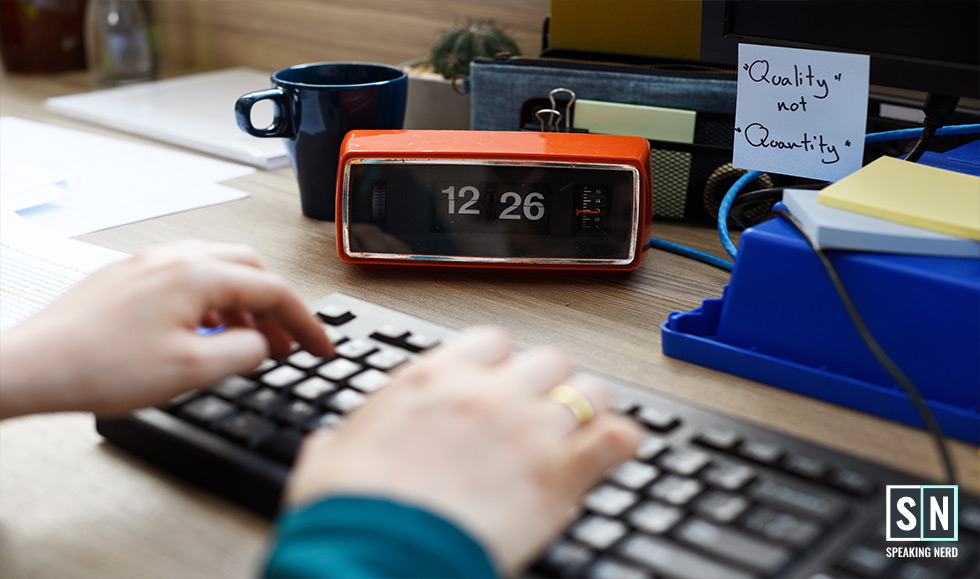Overview
Working styles, offices, and the platforms to stay in touch with colleagues and customers have changed dramatically during the pandemic. The new normal of work now consists of working remotely, learning and collaborating, and fostering workplace resiliency and inclusion.
Table of Content
When working from home, however, many believe that intrinsic motivation is required to execute tasks successfully and on time.
If you work from home, there may be moments when you find concentrating on your tasks difficult. Fortunately, some strategies can help you stay at the top of your game. Maintain your focus throughout the day with a few adjustments and some basic habit-building techniques.
How to Improve Productivity at Home
Wondering how to concentrate on your work at home? Here are a few remote work strategies to help you stay productive.
1. Follow a morning routine
While pajamas are the perfect work-from-home outfit, that isn’t how it should be. You don’t have to dress formally, but changing your clothes can signal your brain that it’s time to work.
When you work from home, preparing as you normally would is best. Take a shower, apply minimal makeup, and do your hair. Then, go through your typical morning routine as if heading to work.
When you get ready for the day, a morning routine can help switch your mindset from home to office mode. Not only will you feel ready to conquer the day, but you’ll also look presentable during video meetings.
2. Use time management strategies
Tracking time when you’re working from home can be difficult, so it’s crucial to incorporate certain time management methods that can help track how much time you spend on different tasks.
The Pomodoro Method, for example, is a terrific approach for getting you to work for two to three hours and then urging you to take a 20- to 30-minute break.

3. Set up a workspace
Working from your bed or sofa can be inviting, but setting something more formal is better. For example, you can get a desk for work or use your dining table as a workspace. However, a study area or office at home is even better for a more conducive home-based work environment.
Your workplace should ideally include a door to keep out distractions and be filled with all the supplies and equipment you’ll need, such as a computer, printer, paper, and headphones. Placing your work equipment at arm’s reach keeps you from leaving the desk, which could otherwise impact your productivity and momentum.
4. Participate in virtual meetings
Contributing to virtual meetings can also help you stay focused. Participate during video conferences by providing input and feedback whenever necessary. Moreover, you can take notes to keep your mind focused on the meeting’s agenda. Otherwise, you could risk getting distracted or becoming drowsy.

5. Make quality technology a priority
While you may enjoy working at your own pace, a slow internet connection or an outdated system may be inconvenient.
The ideal instruments for remote employees are reliable internet connectivity and a working mechanism. If your computer connection collapses and starts disrupting your work now and then, it might break the momentum.
6. Take rest breaks
Working continuously for several hours can take a toll on your body. As your mind grows tired, you’d find it hard to focus and maintain productivity. So, consider taking breaks to allow your mind and body to recharge. Do something unrelated to work to refresh your mind, like stretching or grabbing a snack.
Moreover, take longer pauses a few times a day to connect with others. For instance, take a 30-minute break to talk to someone or play with a pet. Going outside is an effective way to reduce stress, which is especially crucial when working from home.

7. Regularly conduct check-ins
HR are definitely in charge of strategic management of employee wellness programs to ensure that all employees’ emotional, physical, mental, financial, social, and professional well-being is nurtured. Proper employee management can also increase employee retention but taking care of other colleagues is also important as a colleague.
Therefore, Schedule a daily or weekly check-in meeting with your other team members to ensure they have everything they need to work well—and, of course, stay healthy. You can also ask for help if you’re in need.
8. Schedule specific work hours
Set certain hours when you’ll be accessible to work by phone, email, or online. While getting your professional work done is crucial, taking time to unwind, interact with loved ones, and simply rest is also essential. You can set work devices to Do Not Disturb during off-work periods to keep non-emergency messages from coming through.

9. Try meal preparation
Meal prepping is an excellent strategy to avoid becoming overwhelmed by all of the cooking. It can save you from taking time away from work to prepare on-demand meals throughout the week.
Make a couple of meals in advance and portion them into food storage containers. You can do this during off-work periods or the weekends to maximize your free time.
10. Create a wellness routine
Make the most of any spare time during the day to establish a healthy self-care routine. While you don’t have to do two hours of intensive exercise daily, moving and keeping physically active throughout the day is important.
Similarly, try out some nutritious dishes and make time for yourself. In this way, you can perform better at work and elevate your productivity.

11. Set up ground rules with your family
There may be days when your school-aged children are at home. Caring for children might make staying productive even more challenging for parents. That's why having a defined schedule for the entire family is crucial.
Discuss with your spouse how to manage the demands of child care. For example, you can arrange your schedules so that one works in the mornings and the other in the afternoons. Alternatively, you can get up earlier to have extra time to work while the house is quiet. It may relieve some of your workload later on.
12. Ask for support when you need it
Asking for assistance when needed is important to be productive and on schedule. Ask for help if you’re stuck, frustrated, or need to connect with someone. Reach out to your teammates to let them know how you’re feeling. Similarly, if you’re feeling overwhelmed by your task, talk to your supervisor about working out a more flexible schedule.

13. Remove all digital distractions
Another distraction during remote work setups is social media. After all, you don’t have a supervisor keeping tabs, so you’re free to scroll through your phone. Unfortunately, falling into the rabbit hole is all too simple. One glance at TikTok can set you off-track and lose an hour of work time.
Keep social media away to avoid getting distracted. Consider placing your phone on silent or turning its Wi-Fi off to prevent notifications from popping up. Even better, you can create a separate work account on your computer with restrictions on sites unrelated to work. Save social media apps for after you’ve finished your workday.
In Conclusion
Due to the pandemic, all businesses were forced to switch work from the office to the home. By this time, employees have gotten used to working from home. The feeling of remotely working reassured them of safety and protection against COVID-19.
Remote work may be challenging for many. However, maintaining communication, eliminating distractions, and following schedules can help keep your focus and productivity, alleviating the stress of such an isolated setup.


